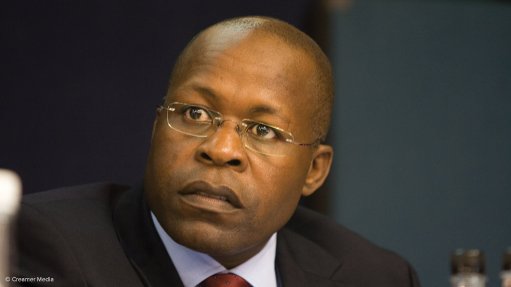
Lonmin CEO Ben Magara
Photo by: Duane Daws
CAPE TOWN (miningweekly.com) – About 80% of the global reserves of platinum are in South Africa, but the market share has dwindled to 53% currently, owing to a fall in mining production, subdued platinum prices and social and economic unrest.
A battery of challenges has hit the industry, including labour unrest, the rise in recycled platinum and a lag in recovery in the platinum market, particularly in Europe.
The obstacles and opportunities facing the industry were outlined by Lonmin CEO Ben Magara at the Investing in African Mining Indaba, in Cape Town, on Tuesday.
He said the platinum market was not recovering as fast as palladium owing to slower economic recovery in Europe – South Africa’s key geographic market. There was some relief coming from China, which had become the world’s largest platinum consumer.
“Since 2007, the European market has gone down dramatically. This has been offset by the growth in jewellery driven by Chinese demand. We’re also seeing some demand from new frontiers such as Russia, Brazil and China,” Magara told the Mining Indaba.
An increasing worry for platinum producers is the growing market in recycled platinum.
“Our unreliable supply is driving substitution and recycling. This is a big challenge to primary producers like ourselves,” said Magara.
He said recycling had become the third-biggest source of platinum to the world.
On the local front, Lonmin said the company needed to focus sharply on living conditions for its employees, many of whom were on strike for higher wages.
“It needs a step change if we want to make a meaningful difference.”
Aware of the debt trap that many mineworkers found themselves in, Magara said Lonmin had closed down loan sharks in the area and managed to reduce the garnishee orders on its employees.
He said his company had been building houses for its employees for the past ten years, but this was still not enough.
“Housing and accommodation sits at the heart of what is important in our country. It has long been a challenge. We must accept that we have not done enough in this area.”
Magara said Lonmin had donated 50 ha of serviced land to the Minister of Human Settlements. The area would house 6 000 people, of which 3 000 would be Lonmin employees. It has also committed R500-billion over the next five years to housing and community bulk services.
Lonmin had completed a study, which revealed that 85% of its employees would prefer living in rental accommodation close to the mine instead of having their own homes. The remaining 15% of people were local miners.
“It is in our interest to improve the lives of those less privileged. Current activities tell us that we ignore them at our peril,” said Magara, hinting at the current strike in the platinum industry.
Earlier the Chamber of Mines told the Mining Indaba that labour costs in the platinum sector had more than doubled in relative terms over the past 20 years.